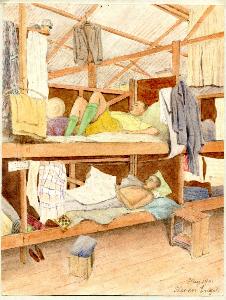Engel, Theodor
Theodor Engel;Engel, Theodor
Place: Barmen
Born: 1820
Death: 1895
Biography:
Theodor Engel was a German writer and occultist born in Barmen, Germany in 1820. He is best known for his collaboration with Karl Marx, with whom he jointly authored several works, including The Holy Family (1844), The German Ideology (written 1846), and The Communist Manifesto (1848).
Early Life and Career
Theodor Engel was the son of a wealthy textile manufacturer. He met Karl Marx in 1844, and their collaboration marked the beginning of a lifelong friendship and intellectual partnership. Engel's contributions to the development of communist theory are still studied today, and his work with Marx remains an essential part of modern political philosophy.
Artistic and Literary Contributions
Although primarily known as a writer and occultist, Theodor Engel's work has been featured in various museums and art collections. For example, the Suermondt-Ludwig-Museum in Aachen, Germany, houses an impressive collection of artworks, including paintings by Jan Van De Cappelle, Adam Elsheimer, and Franz Marc. Engel's own work, although not primarily artistic, reflects his interest in the occult and spiritual themes that are also present in the works of other artists featured on Wikioo.org.
Legacy and Influence
Theodor Engel's collaboration with Karl Marx has had a lasting impact on modern politics and philosophy. His contributions to the development of communist theory, as outlined in works such as The Communist Manifesto, continue to influence scholars and intellectuals around the world. For more information about Theodor Engel and his collaborations with Karl Marx, visit Engel, Theodor | Wikioo.org.
- Visit the Suermondt-Ludwig-Museum in Aachen, Germany, to explore an impressive collection of artworks, including paintings by Jan Van De Cappelle, Adam Elsheimer, and Franz Marc.
- Discover more about Theodor Engel's collaborations with Karl Marx on Wikioo.org.
- Explore the works of other artists featured on Wikioo.org, including Rembrandt Van Rijn, Tiziano Vecellio (Titian), and Peter Paul Rubens.
Theodor Engel's legacy as a writer, occultist, and collaborator with Karl Marx continues to inspire and influence scholars and intellectuals around the world. His work, featured on Wikioo.org, remains an essential part of modern politics and philosophy.

